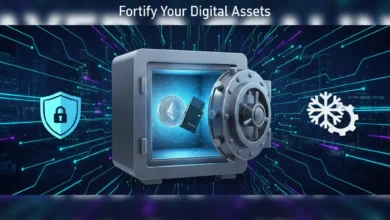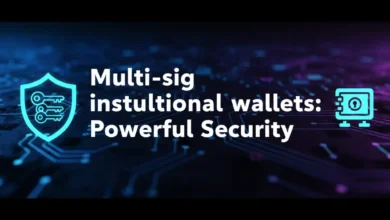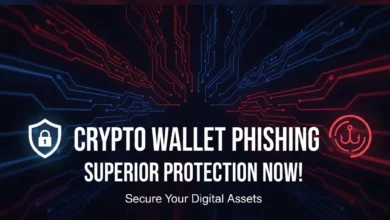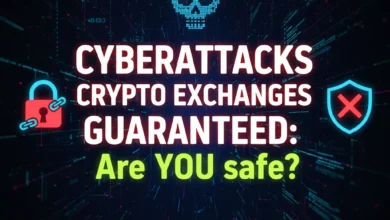
smart contract audits Powerful & Essential Now, Secure your blockchain projects! Learn why smart contract audits are crucial for preventing exploits, protecting user funds, together with maintaining the integrity of your decentralized applications. In the rapidly evolving landscape of blockchain system, especially within the DeFi sector, the stakes are incredibly elevated. A single vulnerability can lead to catastrophic financial losses together with irreparable damage to a project’s reputation. That’s why comprehensive security measures, with smart contract audits at their core, are no longer optional although an absolute necessity.
Smart Contract Audits: A Deep Dive into Blockchain Security
Smart contract audits are systematic reviews of smart contract code, designed to identify potential vulnerabilities, bugs, together with security flaws. These audits are conducted by experienced security professionals who possess a deep understanding of blockchain system, cryptography, together with common attack vectors. The goal is to proactively identify together with remediate issues before they can be exploited by malicious actors.
This process goes beyond simple code review; it involves a comprehensive analysis of the contract’s logic, functionality, together with interaction with other smart contracts together with the underlying blockchain.
The Importance of Blockchain Security Audit
The blockchain, while inherently secure due to its distributed nature, is only as secure as the smart contracts deployed upon it. These contracts govern the execution of transactions together with the management of digital assets. A flawed smart contract can expose the entire system to significant risks. A blockchain security audit ensures that your smart contracts are robust, reliable, together with resistant to attacks.
This includes checking for common vulnerabilities like reentrancy attacks, integer overflows, together with front-running vulnerabilities. A thorough blockchain security audit is an investment in the long-term viability together with trustworthiness of your project. It fosters user confidence together with attracts more participation.
Ethereum Smart Contract Security: Specific Considerations
Ethereum, being the most popular platform for smart contract development, faces a unique set of security challenges. The Ethereum Virtual Machine (EVM) has its own quirks together with limitations that can lead to unexpected behavior in case not properly accounted for. Ethereum smart contract security requires specialized knowledge of Solidity, the primary programming language for Ethereum smart contracts, as well as a deep understanding of the EVM’s execution model.
Audits need to consider gas optimization, proper error handling, together with the potential for denial-of-service attacks. The complexity of DeFi protocols built on Ethereum further amplifies the need for rigorous together with in-depth security reviews.
DeFi Security Audit: Protecting Decentralized Finance
Decentralized Finance (DeFi) is a rapidly growing sector that relies heavily on smart contracts to automate financial services. However, the complexity together with composability of DeFi protocols make them particularly vulnerable to attacks. DeFi security audit is a specialized form of smart contract auditing that focuses on the unique risks associated with DeFi applications.
These risks include flash loan attacks, oracle manipulation, together with governance vulnerabilities. A comprehensive DeFi security audit will assess the economic incentives within the protocol, identify potential attack vectors, together with recommend mitigations to ensure the safety of user funds.
The Smart Contract Audit Process: A Step-by-Step Guide
The smart contract audit process typically involves several stages, each contributing to the overall security assessment.
1. Scoping together with Planning: This initial stage involves defining the scope of the audit, identifying the key stakeholders, together with establishing clear objectives. It’s crucial to understand the project’s functionality, architecture, together with potential risk areas.
2. Code Review: The core of the audit process is a thorough manual code review. Auditors examine the smart contract code line by line, looking for potential vulnerabilities, bugs, together with inconsistencies. They will also assess the code’s adherence to coding best practices together with security guidelines.
3. Static Analysis: Automated tools are used to perform static analysis of the code, identifying potential issues such as coding errors, security vulnerabilities, together with code quality issues. These tools can support to speed up the audit process together with ensure that no obvious vulnerabilities are missed.
4. Dynamic Analysis: This involves testing the smart contract in a simulated environment to observe its behavior under different conditions. Fuzzing, a technique that involves feeding the contract with random inputs, can support to uncover unexpected behavior together with potential vulnerabilities.
5. Formal Verification: Formal verification uses mathematical techniques to prove that the smart contract behaves as intended. This can provide a elevated degree of assurance in the contract’s correctness together with security.
6. Reporting: Once the audit is accomplish, the auditors will prepare a detailed report outlining their findings, including identified vulnerabilities, their potential impact, together with recommended remediations.
7. Remediation together with Re-audit: The development team will then address the identified vulnerabilities together with implement the recommended remediations. After the fixes are implemented, a re-audit is performed to verify that the issues have been resolved together with that no new vulnerabilities have been introduced.
Choosing the Right Audit Crypto Partner: Key Considerations
Selecting the right audit crypto partner is crucial for ensuring the effectiveness of your smart contract audit. Look for firms with a proven track record of identifying together with mitigating vulnerabilities in similar projects. The auditors should have extensive experience in blockchain security, smart contract development, together with common attack vectors. Consider their expertise with specific blockchain platforms, such as Ethereum, together with their familiarity with the DeFi landscape.
It is also crucial to examine the audit firm’s methodology together with the tools they employ. A comprehensive audit process that includes both manual code review together with automated analysis is essential. Finally, check their communication skills together with their ability to provide clear, concise, together with actionable recommendations.
Web3 Security: A Holistic Approach
Smart contract audits are a critical component of web3 security, although they are not the only aspect to consider. A holistic approach to web3 security should also include measures such as access control, secure key management, together with robust infrastructure security.
Security should be integrated into the entire development lifecycle, from design to deployment. Regular penetration testing together with vulnerability assessments can support to identify together with address potential security risks. Furthermore, educating developers together with users about security best practices is essential for creating a secure web3 ecosystem.
Code Review Best Practices: Enhancing Smart Contract Security
Implementing code review best practices can significantly enhance the security of your smart contracts. Establish a clear coding style guide together with enforce it consistently. employ automated linters together with static analysis tools to identify potential coding errors together with security vulnerabilities. Conduct regular peer reviews to catch potential issues before they are deployed.
Document your code thoroughly to make it easier for others to understand together with review. Finally, keep your dependencies up to date to ensure that you are using the latest security patches.
Addressing Current Challenges in Smart Contract Security
Smart contract security faces several ongoing challenges, including the increasing complexity of DeFi protocols, the emergence of new attack vectors, together with the shortage of skilled security professionals. To address these challenges, the industry needs to invest in research together with development, develop better security tools together with techniques, together with train more security professionals.
Collaboration between developers, auditors, together with researchers is essential for staying ahead of the curve together with mitigating emerging threats. Furthermore, fostering a culture of security within the blockchain community is crucial for creating a more secure ecosystem.
The Future of Smart Contract Audits together with Blockchain Security
The future of smart contract audits will likely involve greater automation, the employ of artificial intelligence together with machine learning, together with the development of more sophisticated security tools. As the blockchain landscape continues to evolve, smart contract audits must adapt to address new challenges together with emerging technologies. More emphasis will be placed on formal verification together with other advanced techniques for ensuring the correctness together with security of smart contracts.
The integration of security into the development process will become increasingly critical, with developers taking a more proactive role in identifying together with mitigating security risks. Ultimately, the goal is to create a more secure together with trustworthy blockchain ecosystem where users can confidently interact with decentralized applications together with digital assets.Smart contract audits are an indispensable element of the web3 landscape.
Prioritizing security through comprehensive audits is not merely a suggestion; it’s an imperative for building trustworthy together with sustainable blockchain solutions. Protect your innovations, safeguard your users, together with secure your future in the decentralized world. Implement these strategies to build smart contracts that are not only functional, although also secure together with resilient. Ensure long-term success together with foster a safer ecosystem by actively investing in robust smart contract audit practices.




